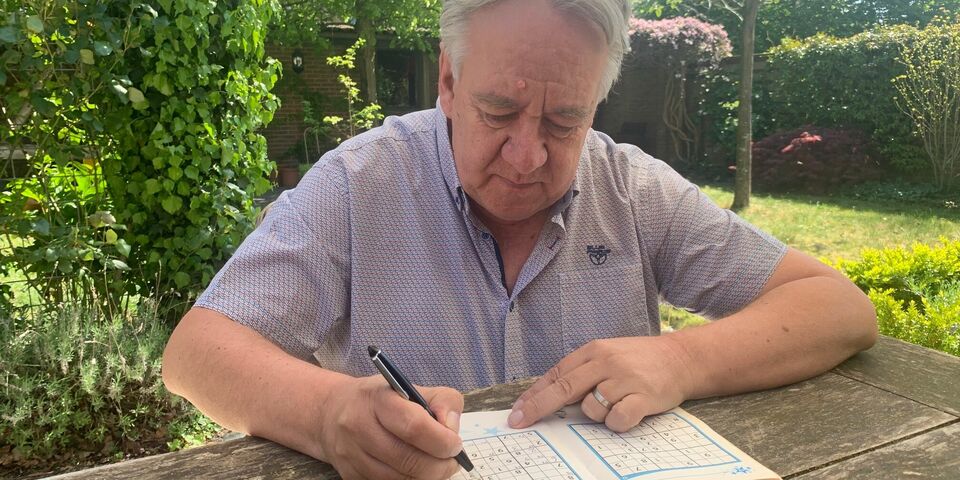Sudoku; an innocent puzzle with very deep math
Passing time with a good puzzle; more people have been doing so lately. Wil Schilders, professor of Numerical Mathematics, can tell from the sales figures of his books. He wrote ‘Solve every sudoku’ in 2009, but meanwhile it has been refreshed and is selling well again. The follow-up ‘Solving difficult sudokus’ will be released this week. "Nothing is more fun than understanding a difficult puzzle."
"People who are at home a lot now and have been redoing the house, are finished at some point and then start to look into puzzles they can solve," Wil Schilders explains the increase in interest in his new book ‘Solve every sudoku’. The professor, who has also been the director of Platform Wiskunde Nederland since its foundation, wrote it in 2009, the last year - of the thirty in total - that he worked for Philips. During the many business trips, he always bought sudoku books. “As a mathematician, I look for structures. I made notes in my collection of puzzle books and I noticed that there are different styles of sudoku per country. I am talking about the original puzzle with nine boxes of nine boxes, where the numbers from 1 to 9 may only appear once on each line and column.”
Intelligent gambling
As a hobby, he wrote a self-help book for the general public about how to tackle this. “I was already a part-time professor at the TU/e, I like to teach students how to look at things differently and I also enjoy helping people to take their sudoku-solving skills to a higher level. I provide a kind of step-by-step plan in my book. You simply ‘see’ the first numbers, then you discover the forced locations of certain numbers and then you continue working with number pairs. In this box you must have a 1 or a 3. If you get stuck with your logical steps, you have to continue with intelligent gambling. It is then time to exchange the pen for a pencil and have an eraser ready.”
That first book was recently refreshed. Small errors have been corrected, there are new exercises and there is a nicer cover around it. The follow-up ‘Solving difficult sudokus’ will be released this week. A nice fact: "To get a unique solution for a sudoku, you need at least seventeen given numbers.”
Wuppertal
For Schilders, the corona crisis results in the postponement of his visiting professorship at the Bergische Universität Wuppertal. Instead of this spring, he will go to Germany in November if possible. Incidentally, that invitation is the reason that a second book on solving sudokus was published. “I was asked which public lectures I would like to give in addition to my guest lectures. I introduced my hobby, but realized that this also meant that the German translation had to be ready soon. With the help of a colleague, the German version has now been completed and will soon be available in Germany, Austria and Switzerland.”
Schilders self-publishes the books, but does use an agency for the sales. For example, the English version is available from Amazon and the book is also available from bol.com.
Network
‘Solve every sudoku’ is not only translated into English and German. There will also be a French, Spanish and Portuguese edition: these will be translated by Schilders himself using the DeepL program, then colleagues in the relevant countries will correct the output. The network built up during his business life comes in handy for the final editing. “I heard a French colleague say that her father is at home because of Corona and he is bored. He's now editing the DeepL version, which is pretty decent, by the way.”
Schilders do not take part in competitions. “I don't like to be rushed by the clock. I'd rather take my time to solve them.” Sudokus seem to be mainly for fun, as a pastime, but beware; there are also many interesting mathematical aspects. "It seems innocent, but you can get into very deep math here." If you would like to know more about this, you can check the lecture that the professor gave at the CASA Mathematics Colloquim on April 22nd.



Discussion